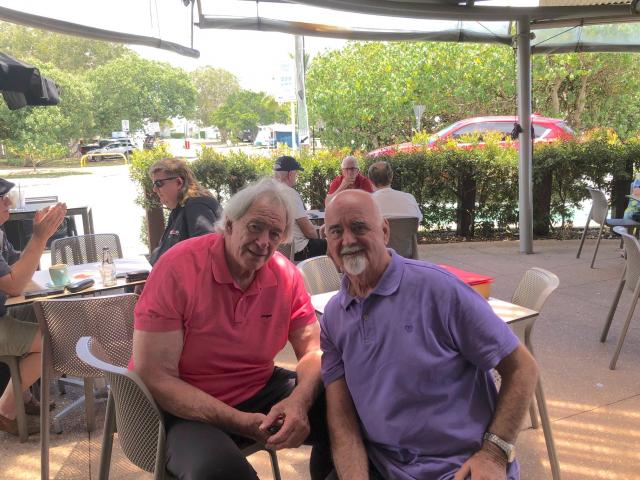After a highly successful Don’t Bottle it Up conference held by the Rotarians 4 Mental Health committee in October, members of the five Rotary Clubs met last week to consider actions to continue their focus into the new year.
Chair of the organising committee, Bob Birkhead from the Rotary Club of Noosa Heads said, “The conference has certainly reaffirmed the need to continue with proactive actions in addressing mental health issues that moves from awareness to action and support.”
Key note speaker at the conference, Professor Jim Lagopolous from the Thompson Institute, outlined areas that were of real concern, including the high level of suicides on the Sunshine Coast, currently at some 10 per cent above the national average.
Their research has indicated that 50 per cent of people under the age of 12 were likely to be impacted by mental health issues.
Through ihelp app that is available on this website thealliance.com.au/ihelp, the Thompson Institute is providing avenues for people impacted by mental health issues, including PTSD, to reach out and seek support.
Australian Rotary Health director Kevin Shadbolt validated the concern about young people by adding that their research has indicated that 75 per cent of people under the age of 25 will be impacted by mental health issues.
At the Rotarians 4 Mental Health meeting, clubs committed to the need to address both of these issues to continue to create awareness and to actively seek out support groups that can assist people impacted.
The level of suicide on the Sunshine Coast has decreased from 20 per cent above the national average to 10 per cent above national average, based on findings by the Thompson Institute.
Other groups specifically aimed at veterans support are seen as vital parts of a further reduction in suicide levels, especially as it relates to veterans and first responders.
At the conference, Tony Dell, founder of Stand Tall for PTS, spoke about the need for greater support for both veterans and first responders.
Tony was impacted by PTSD after service in Vietnam that directly impacted his international test cricket career playing for Australia as well as many Sheffield Shield games for Queensland between 1970 – 1975.
“Stand Tall for PTS has a vision that all Australians will have a clear understanding and respect for those affected by PTS,“ he said.
“PTS is one of the least understood medical conditions and the government provides negligible support for this very costly health problem that is impacting many people in our community from veterans, first responders, to individuals and family units.“
During discussions with Tony Dell after the conference, the role of a support group for veterans called Red Six was raised.
This group was formed in 2018 by another Vietnam veteran, Michael Handley and is proving to be a very effective app for veterans to access.
Red Six provides a phone app that can be downloaded. The app allows veterans to list three people who can be contacted should the veteran need to talk about how they are feeling.
Mr Handley said, “We seek to help vets through this app by providing a very positive way to address suicide and other mental health issues on our veterans.“
“There is a real gap between awareness and actions and we know this app is making a difference in the lives of veterans.”
The app can be accessed via the Red Six website at redsix.com.au
Both Red Six and Stand Tall for PTS provide positive support programs and the Rotarians 4 Mental Health committee will be actively engaged in promoting awareness of these groups as a means to move from awareness to actions and support.
The other key area of the committee’s focus will be directed towards the anticipated high levels of mental health issues amongst young people as stated by the Thompson Institute and Australian Rotary Health.
‘’We will be looking at ways to engage with local groups, sporting clubs and Council to assess how Rotary can play a role in seeking proactive methods of support. The issue is real and the need for a community focus is also very real,“ Mr Birkhead said.
As a result of the positive feedback from the Don’t Bottle it Up conference, the committee are finalising the production of a 20 minute highlight video that will be distributed across the Rotary District network, initially to enable other Rotary clubs to consider how to make a difference in their local communities through a positive program that addresses mental health challenges.







